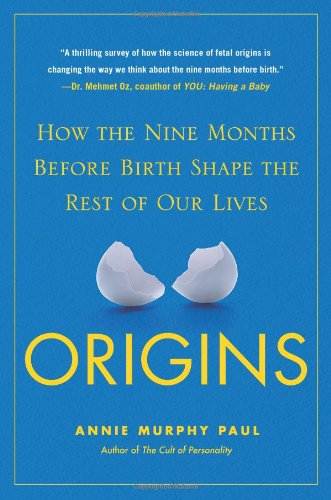Seeing the Baby on the Ultrasound
There’s no doubt that seeing one’s future child on an ultrasound monitor is a powerful experience, the first visual evidence of the fetus in a culture in which seeing is believing. The encounter can be so compelling, in fact, that some medical providers are using it not just as a diagnostic tool, but as a treatment in itself. Zack Boukydis, a professor of psychology at the Illinois Institute of Technology, has been working with doctors for almost a decade to expand routine screenings into lengthier “ultrasound consultations,” in which the pregnant patient is encouraged to point out her fetus’s features, observe its behavior, and notice its responses to actions of her own such as talking or laughing. “I was inspired by the pediatrician T. Berry Brazelton, who popularized the idea of ‘touchpoints,’ or critical moments in child rearing,” Boukydis says. “It seemed to me that seeing the fetus on the ultrasound had become an expectant mother’s earliest touchpoint, her very first experience as a parent.”
Notes:
As the first touchpoint, experience as a parent.
Folksonomies: pregnancy fetal development
Taxonomies:
/family and parenting/motherhood/pregnancy (0.545510)
/family and parenting (0.192239)
/family and parenting/children (0.191904)
Keywords:
T. Berry Brazelton (0.916880 (positive:0.241412)), ultrasound monitor (0.773107 (positive:0.631857)), ultrasound consultations (0.734500 (neutral:0.000000)), fetus (0.639134 (neutral:0.000000)), routine screenings (0.614967 (negative:-0.300300)), expectant mother (0.598911 (neutral:0.000000)), visual evidence (0.595909 (neutral:0.000000)), pregnant patient (0.586447 (neutral:0.000000)), Zack Boukydis (0.585839 (neutral:0.000000)), powerful experience (0.584905 (positive:0.631857)), future child (0.581382 (positive:0.631857)), medical providers (0.580444 (neutral:0.000000)), diagnostic tool (0.578570 (neutral:0.000000)), Illinois Institute (0.568155 (neutral:0.000000)), critical moments (0.564695 (neutral:0.000000)), child rearing (0.562713 (neutral:0.000000)), touchpoint (0.515041 (positive:0.566316)), parent (0.380385 (positive:0.449503)), pediatrician (0.301543 (positive:0.241412)), doubt (0.293494 (positive:0.631857)), encounter (0.285874 (neutral:0.000000)), decade (0.284119 (negative:-0.300300)), responses (0.276520 (neutral:0.000000)), Baby (0.271415 (positive:0.566316)), actions (0.268383 (neutral:0.000000)), idea (0.268320 (neutral:0.000000)), doctors (0.268242 (negative:-0.300300)), culture (0.265230 (neutral:0.000000)), fact (0.263603 (neutral:0.000000)), treatment (0.262943 (neutral:0.000000))
Entities:
Zack Boukydis:Person (0.933551 (neutral:0.000000)), T. Berry Brazelton:Person (0.688493 (positive:0.241412)), Illinois Institute of Technology:Organization (0.531370 (neutral:0.000000)), professor of psychology:JobTitle (0.502912 (neutral:0.000000))
Concepts:
Pregnancy (0.915580): dbpedia | freebase | opencyc
Developmental psychology (0.899176): dbpedia | freebase | opencyc
Infant (0.894532): dbpedia | freebase | opencyc
T. Berry Brazelton (0.825930): dbpedia | freebase | yago
Parenting (0.795319): dbpedia | freebase | opencyc
Kitty Brazelton (0.775530): website | dbpedia | freebase | yago
Waco, Texas (0.765450): website | dbpedia | freebase | census | yago | geonames
Physician (0.748241): dbpedia | freebase





